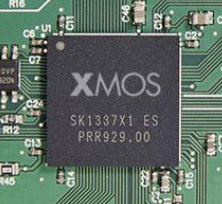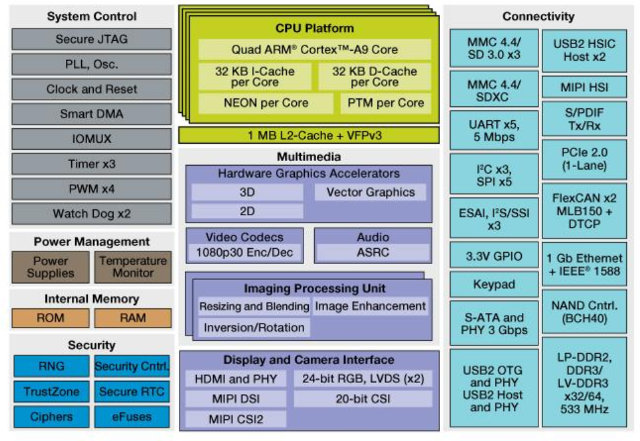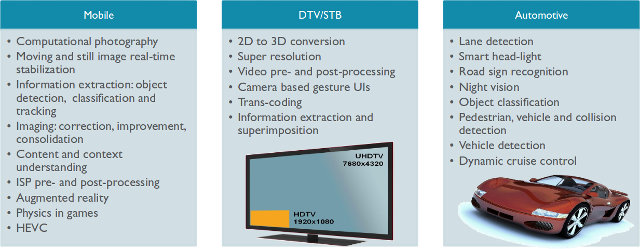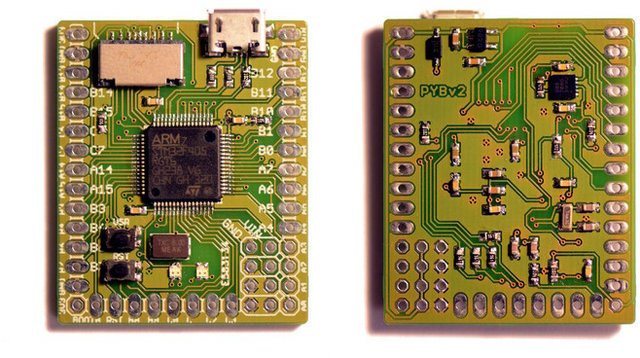This is the last day of the year, and just like in 2012, I’ll look back on the main trends of this year, post a list of the top 10 posts of 2013 on cnx-software.com, and add some fun stats about the site and my visitors. 2013 has been the year of quad core media players and mini PCs, especially those based on Rockchip RK3188, XBMC is now featured in many Android STBs, “big.LITTLE” and “Octa-core” have been the buzz words on the application processor front, Google has entered the HDMI TV sticks market with the ChromeCast, and is competing with Miracast / DLNA TV dongles, we’ve gotten more and more low cost Linux development boards, crowdfunding has almost gone mainstream, and the Internet of things has started to take off thanks to new technologies such as Bluetooth Low Energy. I’ve compiled the list using data from Google Analytics, filtered […]
Bodhi Linux Distribution Has Dropped Official ARM Support (For a While)
Linux is omnipresent in your life via gadget running Android, but in the desktop world, as many of you already know, it’s not straightforward to get a Linux distribution fully work on ARM platform, because each ARM SoC or board is different, and above all binary blobs used for GPUs, VPUs, Wi-Fi and Bluetooth chips can make it extremely complex, even impossible, to have a fully working ARM Linux distribution for a given hardware. After considering that ARM Linux required too much effort, and was not used by many people, Bodhi Linux developers decided to call it a day in October this year, and dropped official support for ARM hard-float images: Effective immediately Bodhi is dropping official support for ARM devices. What does this mean? We will no longer be advertising an ARMHF download link on our front page Updates to ARM images will be infrequent/not at all. The ARM […]
XMOS xCORE-XA Octa-core ARM Cortex-M3 SoC and $14.99 StartKIT Board
XMOS is a fabless semiconductor company that specialized in multicore MCUs that delivers scalable, parallel multitasking compute, which are used in embedded applications for consumer, industrial and automotive markets. They’ve recently announced xCORE-XA (eXtended Architecture), their first MCU based on ARM technology with one ARM Cortex M3 core, and seven xCORE core, as well as a low cost development board called XMOS StartKIT featuring xCORE-A (Analog) with eight cores. XMOS xCORE-XA SoC xCore-XA is actually an octa-core MCU with the following key features: Eight 32bit processors – seven xCORE logical cores supporting DSP instructions, and an ARM Cortex-M3 processor (up to 500 MIPS in total) On-chip Memory – 192KB SRAM, and 512 or 1024KB SPI Flash depending on model. 38 I/O including I2C, SPI, ADC, DAC, op-amps, capacitive sensing comparators, and optional USB 2.0 interface. Hardware response ports – Eliminate the need for interrupts and provide up to 100x faster […]
Linaro 13.12 Release with Linux Kernel 3.13, Android 4.4, and Ubuntu Saucy Salamander
Due to the end of year celebration, Linaro release is a little earlier at this time, and Linaro 13.12 has already been released with Linux Kernel 3.13-rc3 (baseline), Linux Kernel 3.10.24 (LSK), Android 4.4, and Ubuntu Linaro 13.12, which for the first time is based on Ubuntu 13.10 Saucy Salamander. Other interesting development include an initial arm64 Ubuntu saucy rootfs (that one?), work to support octa-core 4x Cortex A53, 4x Cortex A57 SoCs, an Android 4.4 KitKat LEB for the Galaxy Nexus, and ARMv8 LSK and Nexus7_2013-AOSP builds have been setup and Android can be now built using llvm-clang toolchain with the related patches submitted to upstream. On a related note, there are also some Midway and Highbank engineering build images for Calxeda server processors, which may not be that useful going forward, as unfortunately the company has just closed door after running out of cash. Here are the highlights of this […]
Fedora 20 “Heisenbug” Release Makes ARM a Primary Architecture
Fedora has been supporting ARM architecture for a while now, but it was only as a secondary architecture without official support. With the recent Fedora 20 release, nicknamed “Heisenbug”, the ARM architecture, more exactly ARMv7 hard float and greater, is promoted to a primary architecture meaning ARMv7 will have the same status as x86 and x86_64 architectures with packages officially build and supported by the Fedora community. What it does not mean however, due to the nature of ARM architecture, is that you can simply download an ISO to install on any ARM platforms, like you would do on an Intel or AMD computer. It’s a little more complicated than that, as it is platform specific, but instructions are available for the Beaglebone Black, Compulab Trimslice, the Wandboard, Calxeda Energycore Midway and Highbank, and Versatile Express in QEMU. You can download images with MATE, KDE, XFCE, LXDE, SOAS desktops, as […]
Most Embedded GPUs Do NOT Support Hardware Video Decoding Acceleration. The VPU Does.
Many people seem to get confused with the actual function of GPUs used in embedded (ARM / MIPS) SoC, and I can often read comments similar to “with lima drivers we should get video decoding in XBMc soon”, and I’ve just received any email reading “My main task is to build a full hd media player based on ffmpeg with hardware decoding acceleration for Linux. Is it possible with mali400mp4?”. So I’ve decided to write a short post about it to make things a bit more clear. Contrary to GPUs in the PC world, embedded GPUs only take care of 3D, and sometimes 2D graphics, and leave video encoding and/or decoding to another block called Video Processing Unit (VPU). There’s at least one exception with Broadcom Videocore IV GPU as found in the processor used in the Raspberry Pi that apparently takes care of 2D & 3D graphics as well […]
Practical Applications and Benchmarks of GPU Computing via RenderScript and OpenCL with ARM Mali-T6XX GPU
Since the announcement of ARM Mali-T604 in 2010, ARM has explained that GPGPU (General Purpose computing on GPU), aka GPU Compute, would be one of the key features of their new Mali graphics processor, and the company now expects GPGPU to become mainstream in embedded and mobile devices in 2014 and beyond. I’ve just come across a presentation by Roberto Mijat, technical marketing manager at ARM, entitled “Unleashing the benefits of GPU Computing with ARM Mali” which shows practical applications and use cases where the use of RenderScript, or OpenCL can make massive performance improvements, at much lower power consumption, over the same parallel tasks processed by the CPU only. Let’s have a look at some of the most interesting slides. GPU compute can be used for multiple applications in mobile, multimedia, and automotive sectors. GPU Compute for H.265 / HEVC HEVC aka H.265 is the next generation codec providing […]
Micro Python Brings Python to MCU Boards and Robots (Crowdfunding)
Micro Python is an implementation of the Python programming language, written from scratch and optimized to run on micro-controllers such as the ones based on ARM Cortex-M cores. Damien George, the developer, also designed the Micro Python board powered by STMicro STM32F405 Cortex M4 MCU for the purpose of running Micro Python. Even though in this project, the star of the show is not the board itself, as Micro Python will run on other platform once it’s open source, let’s have a look at the hardware specifications: MCU – STMicro STM32F405RG @ 168MHz with 1MB flash, 192KB RAM, and an FPU. External storage – Micro SD slot 30 general purpose I/O pins – 5 USARTs, 2SPIs, 2 I2C busses, 14 ADC pins, 2 DAC pins, 2CANs, and 4 servo ports with power. Built-in USB interface Misc – 4 LEDs, a user switch, a reset switch, a real-time clock, and a 3-axis […]










